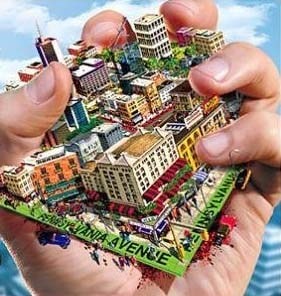آژانس آزاد
Free Agency
“Free agency” refers to the ability of athletes to negotiate their own contracts and working conditions in professional sport. Before the 1970s, most professional sports had some sort of reserve system for athletes. In their reserve systems, players were forced to play for a single team-usually for the duration of their careers-under the conditions set by the team owner and the league bosses.
Historically, the sport of baseball had the most notorious reserve system, which had been intact and strictly enforced for decades. The purpose of the reserve system was to allow owners of professional teams to control the movement of players and reduce their salaries. By being forced to play for only one team, players had little choice but to accept the contractual terms and conditions set out for the player. The player, in short, did not have the freedom to offer and negotiate his services on the open market, as is done on all other industries. This significantly reduced owners’ payroll expenses, and increased profits greatly. In North America, the major professional leagues-in the sports of baseball, football, hockey and basketball-all had some form of reserve system.
In the late-1960s and 1970s, however, the reserve system encountered a number of challenges. The most important challenge came from a baseball player, Curt Flood of the St. Louis Cardinals. Flood refused the terms of a trade and offered his services on the open market of the Major League Baseball. When no offers were made, Flood filed suit in American courts under the Sherman Antitrust Act, which makes it unlawful for any business or combination of businesses to maintain a monopoly in any commercial industry. While Flood did not win the case, a series of subsequent legal decisions made it apparent that baseball owners had unreasonable control over their labourers-the players.
The baseball players’ union became more militant as a result of the Flood case. In 1976, a court decision granted players free agency and the right to negotiate the conditions of their labour services much more freely than they had in the past. The move to free agency changed the character of the relations between professional sports clubs and their owners.
Previously, owners worked or colluded together to limit the movement of players. Professional sports clubs acted like a well-organized club. Free agency meant a more competitive environment for players, and of course player salaries have risen substantially as a result.
Today, sports fans often complain that players’ salaries are too high. While certainly at times it seems difficult to justify the huge salaries of today, it should be kept in mind that before the current era of free agency and big contracts, players barely made a subsistence wage, and often worked under conditions of servitude. The situation now might be less than perfect; however, it’s certainly a vast improvement over the pre-free agency days.
negotiate

to talk with another person or group in order to try to come to an agreement or settle an argument: The government says it will not negotiate with the terrorists. | negotiating for an improvement in the rate of pay | We are negotiating (with the county) to have this road closed to traffic.
—
intact

whole because no part has been touched, spoiled, or broken:
The fragile package arrived intact.
(fig.) Somehow his reputation survived the scandal intact.
Only the medieval tower had remained intact .
His reputation survived intact .
—
contractual

agreed in a contract
Tutors have a contractual obligation to research and publish
contractual obligations
a contractual duty to give three months’ notice of your intention to leave
—
term

▶CONDITIONS◀
terms [plural]
a) the conditions that are set for an agreement, contract, arrangement etc
Under the terms of the agreement, the debt would be repaid over 20 years.
your terms and conditions of employmentDelivery is within the terms of this contract. equal/unequal/the same etc terms (=conditions that are equal, unequal etc)
Small businesses have to compete on equal terms with large organisations.
Men and women should be able to work on level terms .
on somebody’s (own) terms (=according to the conditions that someone wants)
He wanted our relationship to be only on his terms.
—
payroll

the total amount of wages paid
the annual payroll was $88 million
—
suit
▶LAW◀
a problem or complaint that a person or company brings to a court of law to be settled
ᅳsynonym lawsuit
Johnson has filed suit against her.a civil suit
—
maintain
▶MAKE SOMETHING CONTINUE◀
to continue to have, do, etc., as before; KEEP up:
He took the lead, and maintained it until the end of the race.
I hope you will maintain your recent improvement.
Part of her job is to maintain good relations with our suppliers.
Careers Officers maintain contact with young people when they have left school.
Britain wants to maintain its position as a world power.
A lot depends on building and maintaining a good relationship with your customers.
The hotel prides itself on maintaining high standards.
How can we maintain control of spending?
—
monopoly

if a company or government has a monopoly of a business or political activity, it has complete control of it so that other organizations cannot compete with it
monopoly of
They are demanding an end to the Communist Party’s monopoly of power .
the state monopoly of television
monopoly on/in
For years Bell Telephone had a monopoly on telephone services in the US.
a monopoly in copper trading
—
subsequent
happening or coming after something else
ᅳsee also consequent
These skills were passed on to subsequent generations.
subsequent pages of the book
subsequent to something
events that happened subsequent to the accident
—
apparent
easy to notice
ᅳsynonym obvious, evident
it is apparent (that)
It soon became apparent that we had a major problem.
it is apparent from something that
It is apparent from scientific studies that the drug has some fairly nasty side effects.
it is apparent to somebody that
It was apparent to everyone that he was seriously ill.
The difference in quality was immediately apparent .
He left suddenly, for no apparent reason .
Her anxiety was apparent to everyone.
The reasons for his sudden departure soon became apparent. (=were soon understood)
It’s quite apparent that she has no intention of changing her mind.
—
labourer
someone whose work needs physical strength, for example building work
a farm labourer
militant
a militant organization or person is willing to use strong or violent action in order to achieve political or social change
militant political activists
a militant animal rights group
After the assassination of Martin Luther King, black leaders became more militant.
grant
formal to give someone something or allow them to have something that they have asked for
Britain could grant Spain’s request .
I would love to be able to grant her wish.
grant somebody something
The council have granted him permission to build on the site.
grant something to somebody
A licence to sell alcohol was granted to the club.
grant that
(=used in prayers) Grant that we may know your presence and love.
They granted her request.
At last my wish was granted. (=what I wished for happened)
substantially
very much or a lot
ᅳsynonym considerably
substantially higher prices
The deer population has increased substantially in recent years.
barely
only with great difficulty or effort
ᅳsynonym only just
She was very old and barely able to walk.
Mary had barely enough money to live on. barely audible/perceptible/visible/discernible etc
His voice was barely audible.
She could barely understand English.
subsistence
the condition of only just having enough money or food to stay alive
Many of the families are forced to live at the subsistence level.
The land provided subsistence and little more.
servitude
the condition of being a slave or being forced to obey someone else
ᅳsynonym slavery
working for this low pay is a form of servitude
—